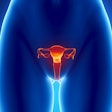
Canadian researchers from McMaster University in Hamilton, Ontario, have developed a blood test that tracks dietary fat intake. Results from a study using the test were published March 31 in the Journal of Lipid Research.
The test could help nutritional epidemiologists develop better guidelines for dietary fat consumption, especially for specific populations such as pregnant women, whose fat intake can affect the health of their babies, according to a team led by Philip Britz-McKibbin, PhD.
The test identifies non-esterified fatty acids (NEFAs), free fatty acids that can be measured using a blood sample, according to the researchers. For their study, Britz-McKibbin and colleagues evaluated diets of pregnant women in their second trimester. The women (some of whom were taking omega-3 fish oil supplements) reported their average consumption of dairy foods and oily fish; they were then tested with the new technology. The study also tracked any changes in omega-3 NEFAs in women taking high-dose omega-3 fish oil supplements as compared to those taking a placebo.
The group found that certain blood NEFAs corresponded to the diets and supplements the women described, suggesting dietary biomarkers may offer a way to assess fat intake.
"Fat intake is among the most controversial aspects of nutritional public health policies given previously flawed low-fat diet recommendations, and the growing popularity of low-carb/high-fat ketogenic based diets," Britz-McKibbin said in a statement released May 15 by the university. "If we can measure it reliably, we can begin to study such questions as: Should pregnant women take fish oil? Are women deficient in certain dietary fats? Does a certain diet or supplement lead to better health outcomes for their babies?"



















